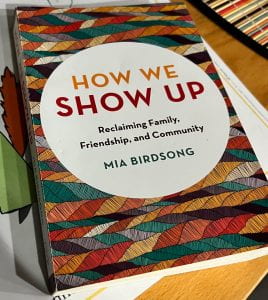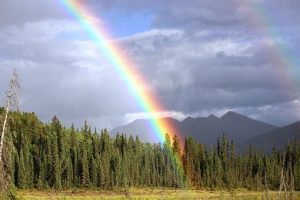I had initially sent out to write a blog about all that I’ve been learning on this trip to Jacksonville, Florida for the Association of Teacher Educators annual meeting, and particularly what I’ve learned being a part of this year’s W. Robert Houston ATE Leadership Academy. It’s been a moving experience that has challenged me to find ways to walk alongside our friends and colleagues in spaces that are facing greater situational challenges than I face. It has renewed my commitment to centering those who are most marginalized. It has given me so much.
But when I started to write that blog, this blog, that wasn’t there. In fact, that whole last paragraph and this one, are only coming after I wrote what comes next in the post. I may write that other blog, or maybe I won’t, in that form, but it’s okay. There can be no room for committed action, if there is not room for the reflection that allows for us to step into ourselves. If we are not present and authentic, we are just going through the motions. I do not want to lead at a frenetic pace from an absent space. So here’s the blog I needed to write today:
I have been extremely overwhelmed lately.
This is not a particularly new feeling.
In the cycles that make up the year and make up my life, I have become accustomed to periods of overwhelm, from both exciting and hard things. In the past, I would power through these periods, snapping irritably at those I loved who might try to slow down my frantic whirlwind in an attempt to connect with me and in hopes that I might honor any form of self-preservation. These attempts often failed and I would inevitably collapse in exhaustion or illness. During these periods, there was no time for pausing, breathing, or stopping. There was no time for my own humanity.
There is a distinct feeling in these times of acute anxiety, the sense that although I am doing so many things, it is never enough. Every small request or critique feels like a huge obligation, and things that I normally want to do become burdensome things that I have to do. Everything within me wants to withdraw from everyone, particularly the people I love the most.
I don’t do this, but in some ways, I do. I offer a small shell of myself because it is what I have accessible. Then I feel badly because I am not fully present, my attention pulled in a million directions.
I have been working on this a long time. I am learning to pause and recenter. I am realizing that the old habits of withdrawing are a desperate cry by my own brain to have some space, some pause, to free itself from the obligations it puts upon itself, but also from the many demands it feels by commitments made to others. Perhaps it is my brain’s way of drawing boundaries.
I am not perfect at this unlearning, but yesterday, I found moments to pause:
- Walking at sunrise across the St. John’s River, breathing and taking in the birds chirping and the water flowing
- Writing a Narrative Ethnosketch/ Emulation poem (see below) under the guidance of Drs. Rudy F. Jamison, Jr. and Chris Janson.
- On the bus between destinations in Jacksonville.
- In my room, reading The Art of Stopping and trying to actually practice stillpoints as a form of pausing.
Although I still feel chaotic in this busy time, I am reminding myself that part of entering this next period of my life is about coming back to myself, honoring who I am, and remembering what I bring to people, places, and communities. I have seen time and time again that when I can reconnect with myself, I am also best for others.
I wrote this Narrative Ethnosketch in a workshop yesterday as part of the W. Robert Houston ATE Leadership Academy. We were given the prompts: I come from a place where … –> I went to a place where … –> I am still going to a place where … :
I come from a place where…
my mother left all of the life she knew for a chance to bring better to her children, yet unknown
a place where she was told that the best way for us to succeed was to speak “perfect English”
a place where my success meant turning away from her (our) histories, her (our) heritage, her (our) language
I come from a place where who I was never felt good enough,
where I always felt between two worlds, never belonging to either
where I was not seen as a leader
where my voice and its power surprised others
I come from a place where I knew I was not what everyone hoped I would be
where I was surrounded by others but always felt invisible and alone
I went to a place where…
I had to lose almost everything I cherished to find myself.
where I had to prove myself at all times
where I began to build (in/with) community to survive, and eventually to thrive
I went to a place where chosen and created family filled the void of lost love
where I began to educate myself rather than believing all that I had been told
where I began to reclaim my own power and become comfortable with my own voice
I went to a place where I began a journey to reclaim my (our) histories, my (our) heritage, my (our) languages
I went to a place where I could see and honor my mother’s choices for me, rooted in her humanity and love, even as I make different choices for my own children that are similarly rooted in my own and our shared humanity and love.
I am still going to a place where…
my heart is an asset instead of a liability
where I can fully embrace and hold space for my own humanity
where I continue to grow in community even when it is challenging,
especially when it is challenging
I am still going to a place where love flourishes in collective movement that does not always mean agreement but that calls me in with love, courage, and grace, knowing I can receive and grow.
I am still going to a place where I recognize and honor who and whose I am in the ways I walk & work in the world.
I am still going to a place where there is space for sustainability, rest, and thriving in all of this.









